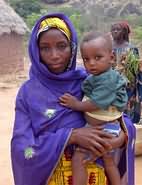|
An Institutional and Legislative Approach Kwadwo Appiagyei-Atua Faculty of Law, University of Ghana, Accra, Ghana Abstract A popularly-held definition of sustainable development is 'Development which meets the needs of the present without compromising the ability of future generations to meet their own needs'. But the question is what kind of development and development for whom? To make holistic development sustainable, it has to involve a rights-based approach to participation which involves the people whose lives will be directly affected by the environment in which they live and which has to be exploited for development to take place. This will involve respect for the ensemble of their rights – right to freedom of expression, freedom of thought, freedom of religion, freedom of association, right to work, right to property. The approach also involves the recognition of the people as subjects, not objects of development. The rights-based approach will borrow from a key constituent element embedded in the definition of minorities which serves as a key justification for the protection of their rights. That is, the preservation, development and transmission to future generations of “their ancestral territories, and their ethnic identity, as the basis of their continued existence as peoples, in accordance with their own cultural patterns, social institutions and legal systems.” The need to adapt this framework for non-minority groups who are also under domination or threat of domination by the State, or a non-state actors or individuals in the name of economic development is crucial to the promotion of human security for such vulnerable people, particularly women, children and the elderly. Human security is about the protection of individuals and groups against threats associated with poverty, natural disasters, weak state institutions, obsolete and human rights insensitive laws, etc. To better ensure their protection and promote their security, it is important to adopt the necessary institutional and legislative framework that will ensure adequate checks on the duty-bearers to respect, protect and fulfill their duties to the weak, the poor and the vulnerable. The paper will conclude by expanding on the statement made by Wangari Maathai, the 2004 Nobel Peace Laureate, that “there can be no peace without equitable development; and there can be no development without sustainable management of the environment in a democratic and peaceful space.” |
|
|
||
|
Dr. Kwadwo Appiagyei-Atua, is a lecturer at the faculty of law, University of Ghana, Legon. He is also a Fellow (Legal and Constitutional Policy) of the Ghana Centre for Democratic Development (a democracy and governance research think-tank). Dr. Appiagyei-Atua obtained his Doctor of Civil Law degree in International human rights law from McGill University and proceeded to do his postdoctoral fellowship with the Irish Centre for Human Rights, National University of Ireland, Galway. He worked with the National Judicial Institute of Canada as Senior Advisor, International programs before assuming his current posts. His areas of interest and specialization are in human rights (particularly in relation to development, constitutional law, minority rights and gender); and post-conflict, transitional justice, peace-building and reconciliation. Dr. Appiagyei-Atua has done consultancy work in the above areas with organizations such as International Centre for Transitional Justice (ICTJ), Institute for Democratic Governance as Lead Researcher on behalf of the Africa Governance Monitoring and Advocacy Project (AfriMAP) in the area of Justice Sector and the Rule of Law, and numerous NGOs in Africa, Canada and Ireland. His recent academic publications include, “A Rights-Centred Critique of African Philosophy in the Context of Development,” Vol. 5 (No 2) 2005 African Human Rights Law Journal, “State Sovereignty v. Self-Determination: A Critique of the African Commission Decision in the Ogoni Case,” in Joshua Castellino and Niamh Walsh, eds, International Law and Indigenous Peoples (Leiden: Martinus Nijhoff, 2004), 301; and “Minority Rights, Political Stability and Economic Development – The African Experience,” accepted for publication in the next edition of the Legon Journal of International Affairs (LEJIA); and, “Bumps on the Road: A Rights-Based Critique of how Africa got to NEPAD,” accepted for publication in African Human Rights Law Journal. Dr. Appiagyei-Atua is currently writing a manuscript, Emerging Human Rights Norms in Post-Cold War Africa for publication by Ashgate Publishers. |






International Symposium on
Drylands Ecology and Human Security


© 2006 NDRD Imprint Disclaimer

Download your
PDF version
of this abstract here ![]()

"Poverty does not only oppress; it dehumanizes humanity. The worst victims are women and children. And where women and children are oppressed, the whole community suffers, directly and indirectly. Our fate is linked together. Let’s fight poverty together."
Kwadwo Appiagyei-Atua
For further information about any details concerning ISDEHS 2006, please contact us at:![]()
info@isdehs.com